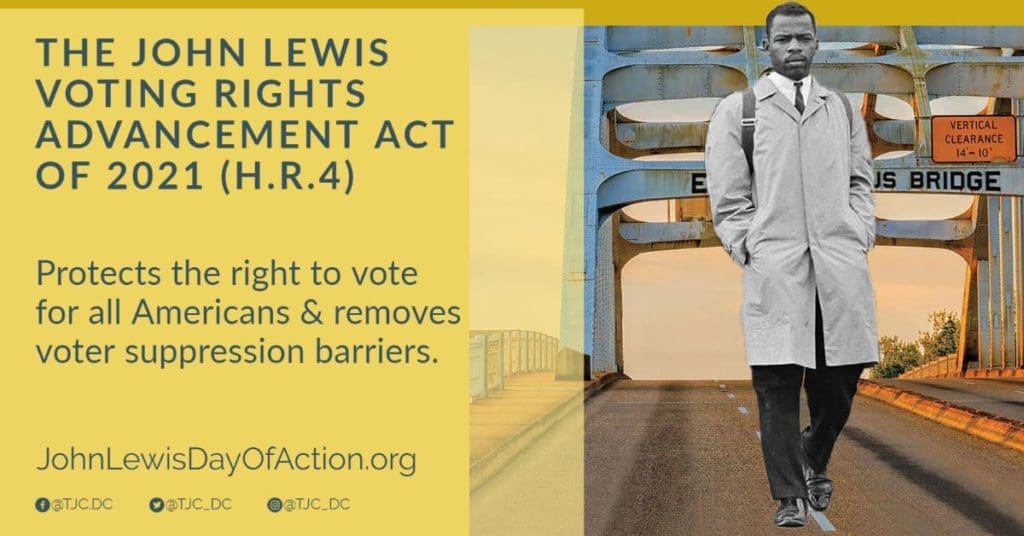
America Walks extends its organizational support for the John Lewis Voting Rights Act and the Freedom to Vote Act. Why would a non-profit focused on walkability weigh in on protecting voting rights. The answer is complex, but so is the problem and the need for multiple approaches.
First, consider who suffers disproportionately from our transportation infrastructure.
- From 2010-2019, Black people were struck and killed by drivers at a 82 percent higher rate than White, non-Hispanic Americans. For Indigenous and Alaska Native people, that disparity climbs to 221 percent.
- A well-documented set of data and historical research — as well as the lived experience — has shown that the interstate highway system has devastated Black communities.
- Exclusionary zoning raises housing prices and denies opportunity for lower income people to live in walkable neighborhoods.
- Enforcement of jaywalking and other traffic laws is disproportionately imposed upon Black residents.
How does that pertain to voting rights?
More importantly: How doesn’t it?
America Walks believes in the power of people to organize to improve their communities. Through our education, training and federal advocacy we work to support those working at the local level for walkable, accessible, and equitable communities. Central to the mission of local advocacy is the ability of every eligible community member to cast one’s vote in local, state and federal elections.
In the words of our Executive Director Mike McGinn: “As an advocate before I was Seattle Mayor, I believed that community organizing had the power to create positive change. After I was elected, I knew that it was essential – indeed that nothing else could overcome institutional power.”
For these reasons, America Walks supports the election reforms in the Freedom to Vote Act and the John Lewis Voting Rights Act. Because infrastructure, the well-being of communities, and voting are intimately linked.